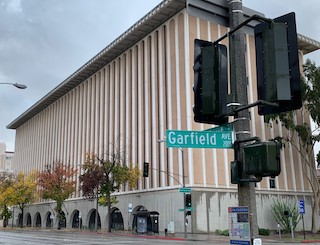As the reader of this website may be aware already, California Code of Civil Procedure (CCP) § 222.5 has been amended several times over the years to permit better jury selection, also known as voir dire. With the arrival of 2019, a new improved version of CCP § 222.5 again has been passed into law.
Why This Article Matters: Starting in 2019, under the new jury selection statute, a party may present the jury with a short “mini opening statement” about the case prior to beginning voir dire.
As anyone who has selected a jury knows, voir dire (Latin for “tell the truth”) is the crucial time when attorney and judges hear prospective jurors explain their opinions on issues that may be material to the defense or the People’s case in chief. Jurors may explain their opinion that if police arrested someone, the person must be guilty of the crime because police have access to witnesses at the scene, knowledge about crime in their patrol area and experience at evaluating when a crime takes place. Other jurors may share an experience of a family member being illegally arrested and later convicted, only to have an appellate court reverse the police and prosecutor errors.
The purpose of voir dire is to select a fair and impartial jury and to assist counsel in the intelligent use of challenges for cause and peremptory challenges.
As the U.S. Supreme Court has also stated: "[v]oir dire examination serves to protect that right by exposing possible biases, both known and unknown, on the part of potential jurors. Demonstrated bias in the responses to questions on voir dire may result in a juror being excused for cause; hints of bias not sufficient to warrant challenge for cause may assist parties in exercising their peremptory challenges. The necessity of truthful answers by prospective jurors if this process is to serve its purpose is obvious.” McDonough Power Equipment, Inc. v. Greenwood (1984) 464 U.S. 548, 554.
 Pasadena Courthouse
Pasadena Courthouse
Voir dire is when attorney’s can first expose jurors to the facts of the case and see the juror’s reactions. To more clearly see juror’s opinions, CCP section 222.5(d) provides, “Upon request of a party, the trial judge shall allow a brief opening statement for each party prior to the commencement of the oral questioning phase of the voir dire process.” This is known as a mini opening statement.
We think this is a must in every trial to truly appreciate the juror’s later responses to questions. It gets the jury engaged. It is also a way for the attorney to introduce the strengths and weaknesses of his case and build credibility with the jury. After all, any attorney who has picked a jury will tell you that voir dire is perhaps the most important time to “win” jurors to one’s side.
We therefore recommend that an attorney file a motion in limine seeking judicial permission to give such a mini opening statement and to clarify limits on its length.
CCP § 222.5 also allows the parties to submit a jury questionnaire and be afforded reasonable time to evaluate the responses from jurors. This can be critical toward excluding certain jurors for cause and making the actual juror follow-up questioning more effective.
One of the common issues that such questioning will address is whether a juror or jurors will follow a particular jury instruction that is material to a party’s case. On this issue, the California Supreme Court held that “a reasonable question about the potential juror’s willingness to apply a particular doctrine of law should be permitted when from the nature of the case the judge is satisfied that the doctrine is likely to be relevant at trial.” People v. Williams (1981) 29 Cal. 3d 392, 410.
To accomplish this, it is smart to simply ask the trial judge if the key jury instructions can be read and discussed with jurors. However, it is improper to ask “any question which, as its dominant purpose, attempts to precondition the prospective jurors to a particular result, indoctrinate the jury, or question the prospective jurors concerning the pleadings or the applicable law.” CCP § 222.5. Nonetheless, the directions in Standard 3.25(c) is that the trial judge will ensure jurors “will, without reservation, follow the court’s instructions and rulings on the law and will apply that law to the case.” STANDARDS RELATING TO EXAMINATION OF PROSPECTIVE JURORS IN CIVIL CASES §3.25(c). Indeed, a juror will need to know what the law is before the judge and counsel can make sure the jury will follow the applicable jury instructions, so it logically follows that reading the jury instruction to the jury is appropriate to make jury selection meaningful.
Lastly and most importantly, CCP § 222.5 states that the trial judge “shall permit liberal and probing examination calculated to discover bias or prejudice with regard to the circumstances of the particular case in front of the court.” This means that the judge cannot impose arbitrary time limits for jury selection. C.C.P. § 225(b)(2).
 Pasadena Courthouse
Pasadena Courthouse